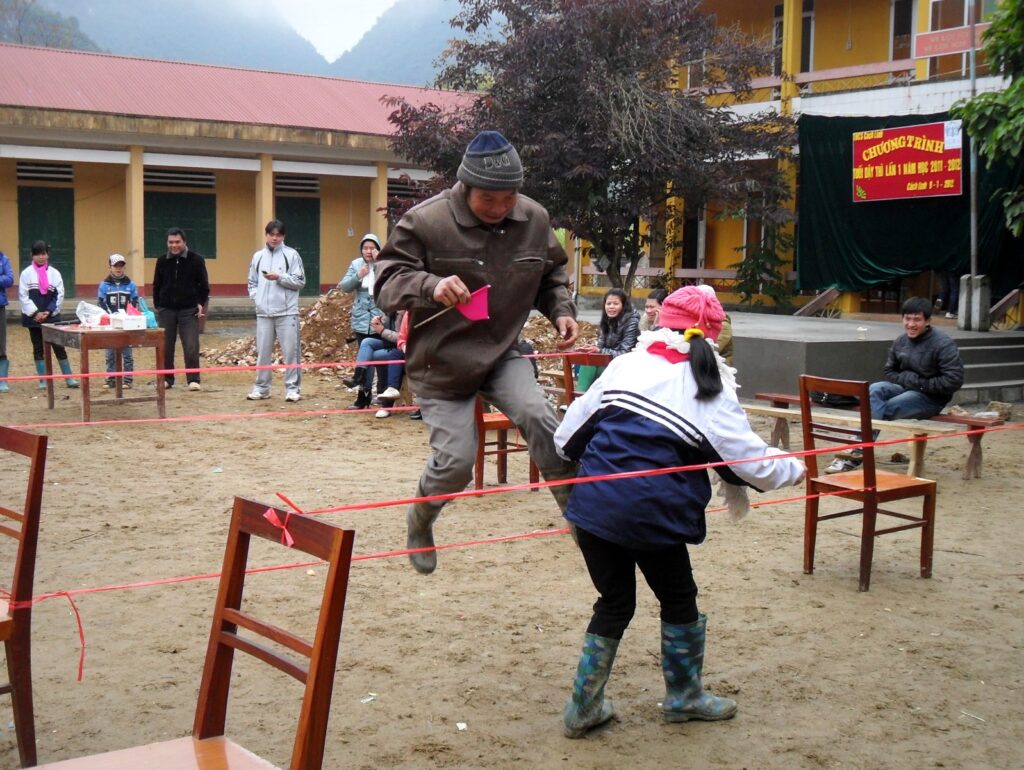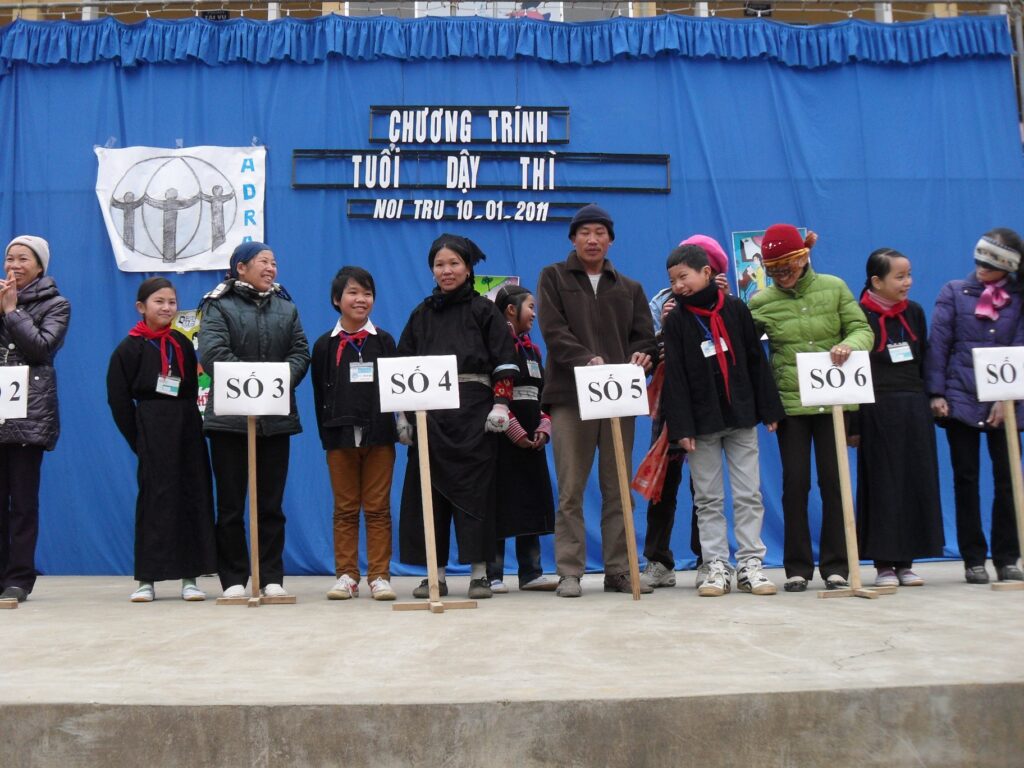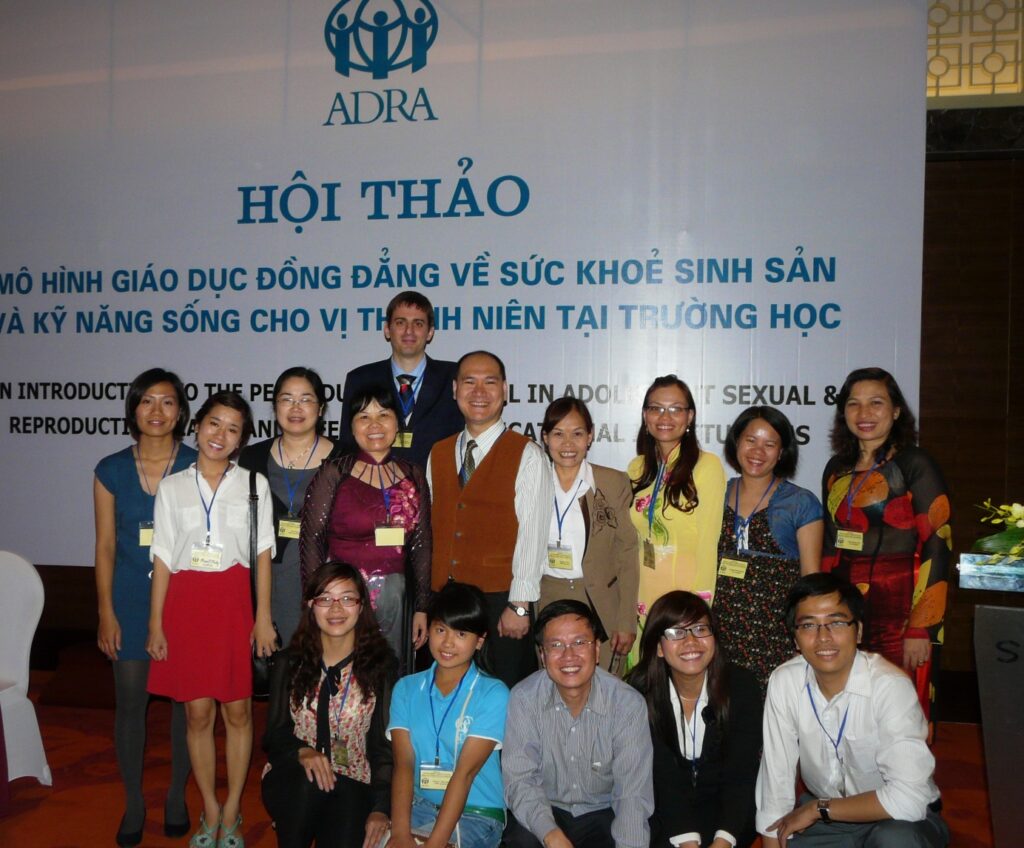ADRA’s workshop sharing the “Model of Peer Education to promote adolescent Sexual and Reproductive Health in schools”
On 16th April 2013 at The Sofitel Plaza Hotel in Hanoi, ADRA in Vietnam held a workshop to share our experiences implementing a Model of Peer Education to promote Sexual and Reproductive Health (SRH) among adolescents in educational institutions. The event is part of the READY for Health project (July 2007–June 2013), funded by ADRA Australia and implemented in the mountainous and remote province of Cao Bang. The project aims to build the capacity of local health and education authorities to support a system of adult mentors and peer educators who are able to equip adolescents (both provincial and district levels) in the province with the skills and knowledge to make healthy lifestyle choices, particularly in the context of SRH, substance abuse and forming effective relationships. SRH education is not officially part of the school curriculum in Vietnam and in some communities, where the topic still remains taboo, ignorance could lead to risky behaviours among adolescents both in terms of health and social interactions.
The workshop was organized to provide a range of practitioners in the fields of health and education, a description of the SRH Peer Education Model and an overview of our experience so that it could be replicated to other localities after the READY project ends.
The READY for Health Peer Education model applies a Training of Trainers approach, which builds the capacity of a group of key resource staff from the Departments of Health and Education to become “Master Trainers”. They in turn will train selected Adult Mentors, normally school teachers, who then will train the Peer Educators to conduct Behaviour Change Communication activities within the education institutions promoting sexual and reproductive health and other life-skills among their classmates. Training documents and other technical materials have been consolidated and localized so that they are ready for local use and replication. A team of 28 resource Master Trainers has been created and trained to sustain the implementation of SRH education and behavior change communication activities in long term.
Process of Capacity Building

Education and communication activities are diverse, ranging from in-class discussions, school plenary sessions, informal counseling between peers, summer camps and puberty programs for pre-adolescent youth. The implementation of the model leads to meaningful outcomes. More than 8000 students from 53 secondary schools in Cao Bang now have access to SRH knowledge, a topic which was once sensitive topics such as sexuality, prevention of unwanted pregnancies and HIV/STIs, drugs and substance abuse, romantic relationships, domestic violence etc. Most of all, the teachers have noted a remarkable improvement in the confidence and openness of the students involved in the project and of the adult mentors themselves. An indirect impact of the activities has been the strengthening of the relationships between the students and their parents as they are now able to talk more openly with each other.
Supporting the program is the 24/7 Confidential Hotline and Internet Counseling service (CHIC) called “Tu Van Tuoi Hoa” (http://www.tuvantuoihoa.org.vn/) which was established by the project, but has since been handed over to the Department of Health. The service receives on average 500 calls per month, maintains and updates a website with 25,000 hits per month and a radio program providing much needed information on SRH topics in several ethnic minority languages.
The workshop convened 66 people from a wide spectrum of organizations such as international agencies (UNICEF, UNESCO and UNFPA), international and Vietnamese NGOs, government departments (Provincial Departments of Educational & Training, Health, National Committee of Ethnicity), schools and mass organizations expert institutions such as the Youth Union’s Vietnam adolescent research academy. The great interest in the topic demonstrates the growing concern from different stakeholders about the issues of sexual and reproductive health among Vietnamese adolescents. Participants listened to presentations from project staff, the implementing partner (Cao Bang Department of Education and Training), an Adult Mentor and Peer Educator from the project. Feedback about the model was very positive and questions received focused on methods of monitoring and evaluation and sustainability in the pretext that the model could be replicated to different provinces with different groups of students.
“This is a meaningful project that ADRA in Vietnam has implemented to help the future of the young generation in SRH, an area which has not been addressed comprehensively on the account of “shyness” and the lack of resource and capacities” said Mr.Duc from the Center for Non-Formal Education of Vietnam. Other commented showed appreciation that the key to ADRA’s successful implementation was the effective engagement with local authorities, the Cao Bang Department of Education and Training, to institutionalize the models down to the school level. Some delegates suggested the involvement of the Ministry of Education in assessing and institutionalizing this model for further application by other agencies.
As a result of the workshop, tool kits containing technical materials designed in modules and lessons learned will be disseminated to participants to support replication of the model to their localities.








